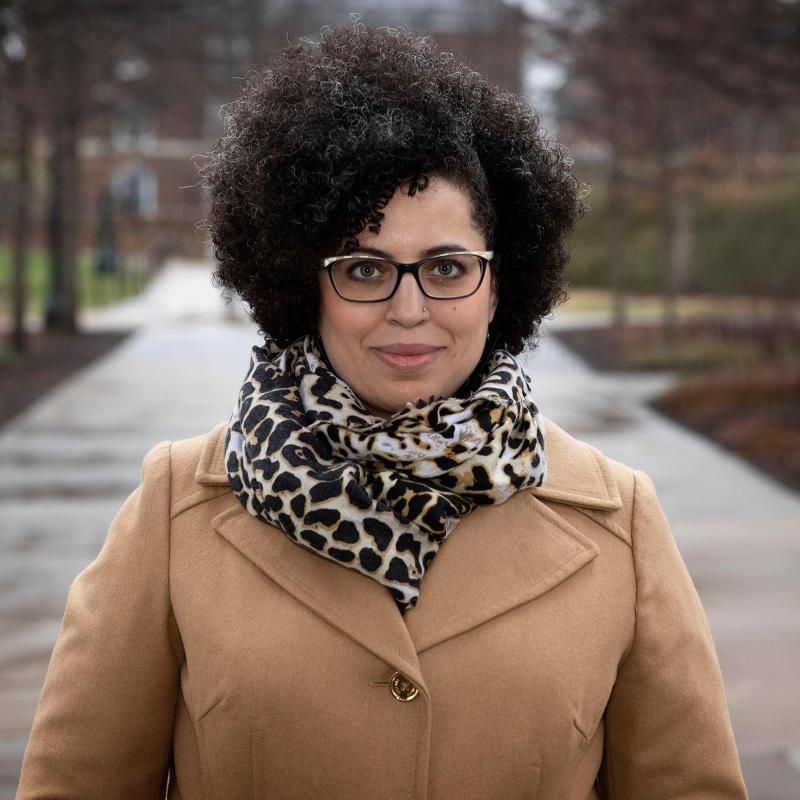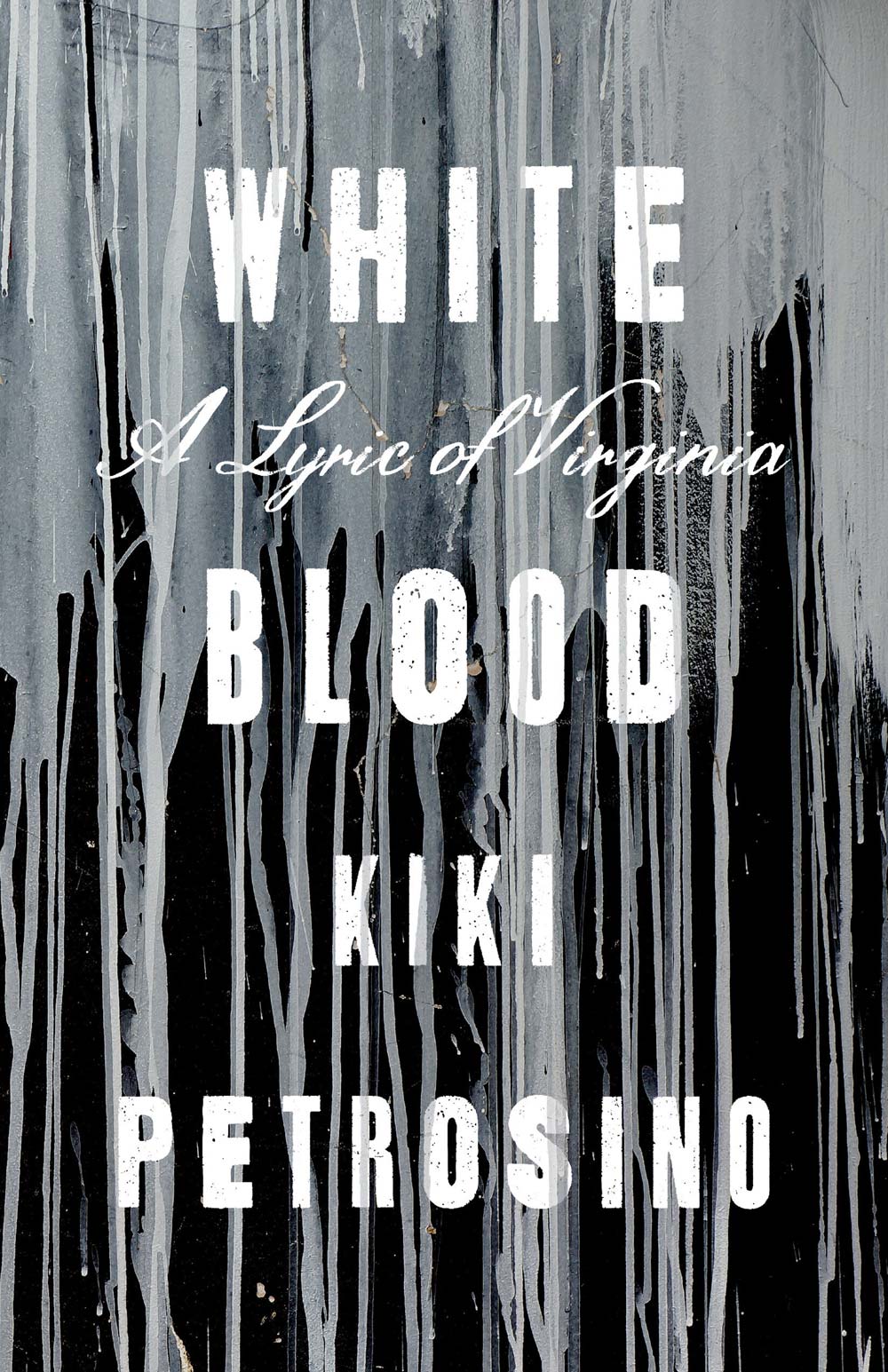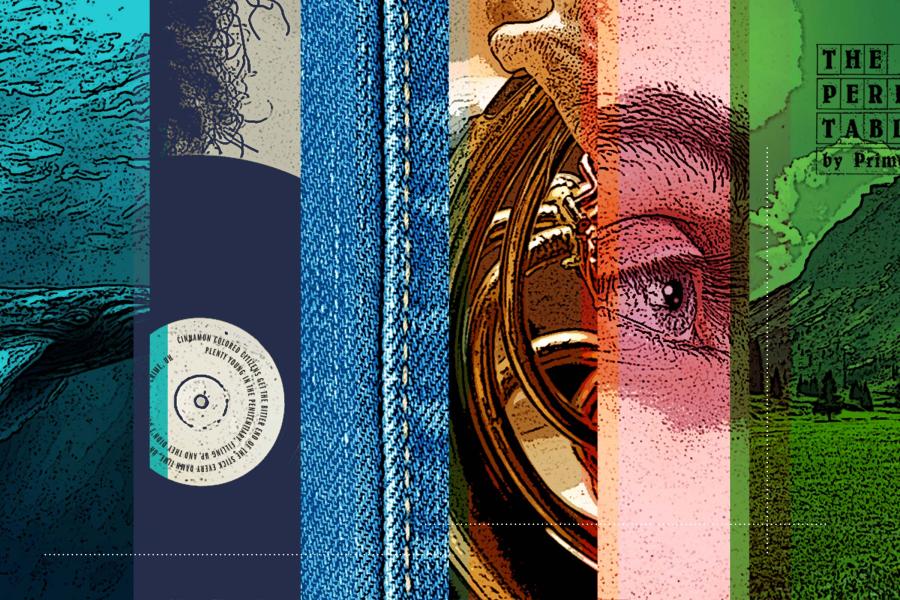In an early section of the book, “Happineſs,” she meditates on her years as a UVA student, in a sequence of sonnets called a double crown sonnet, in which 15 sonnets are linked by last and first lines from one poem to the next. In #13, the writer connects getting an education at Jefferson’s University to her ancestors:
… Mine
that serpentine wall, the forgetting
about crying. Gold look of the air
gathered between mountains, mine too
that graduation in mud before
the Rotunda’s bare belfry.
Who knew me then, yolk-in-shell?
In whose wagons did I ride safe
in my straw nest? Neat trick, close shave.
How was I the dream, the hope, of the slave?
“White Blood”is Petrosino’s fourth volume of poetry. Her previous collections include “Witch Wife,” “Hymn for the Black Terrific” and “Fort Red Border.”
If it wasn’t for the coronavirus pandemic, Petrosino would’ve been spending time in Charlottesville and traveling to give readings; nevertheless, “White Blood” has been well received. The New York Times included it in its June 9 list of “New and Noteworthy Poetry.” Publisher’s Weekly, the Southern Review of Books, The Millions, Library Journal, the Academy of American Poets and more have praised the collection of poems and included it on their reading lists – of 2020 books, of books about women’s history and also as anti-racist poetry.
The title “White Blood” comes from a line in one of the poems, “Terrorem,” about which she said, “Interpreted across the whole volume, it’s sort of a meditation on the complicated legacies of race in Virginia, whether we talk about one’s personal genealogy or about our collective history in Virginia and in the U.S., a history which involves various types of discrimination on the basis of race.”
From her statement as an NEA Fellow, she wrote that she hoped her new book would reach “the intersection of public and private history. It is at such crossroads that poetry begins.”
“I hope my poems hold space to contemplate what ties us together as an American family. I mean ‘family’ in every sense of that word.”
- Kiki Petrosino
“As I have developed this project,” she wrote, “the very fact of my own literacy – which I practice each day in my career as a black artist and teacher – has been my great mystery to unravel, a marvelous gift my ancestors passed down to me through generations of effort.”
The research was often frustrating, taking her to dead ends, so she had to decide how to deal with what she didn’t know. The collection expands into public history – about slavery and racism. The timing of the book’s publication prompted her to make a connection between her work and the present time of protests against police brutality and racism.
“In this time of strife and division,” Petrosino wrote in email, “I hope my poems hold space to contemplate what ties us together as an American family. I mean ‘family’ in every sense of that word. Researching and writing ‘White Blood’ showed me that we all belong to one another and are responsible for one another’s well-being.”







